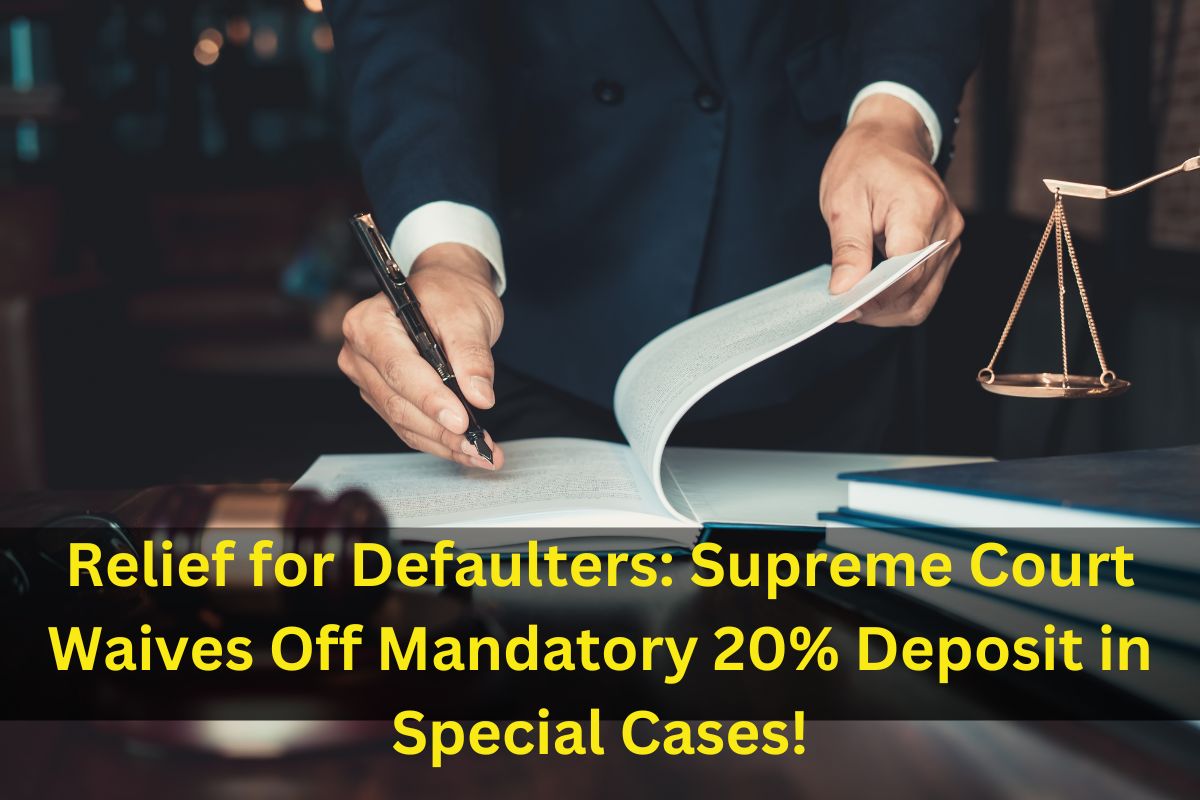New Delhi, July 29, 2024– In a landmark ruling, the Supreme Court of India has declared that the 20% deposit requirement under Section 138 of the Negotiable Instruments Act is not mandatory in all cheque bounce cases. This decision significantly changes the legal landscape, providing relief to many accused individuals.
Also Read Section 139 Explained: The Presumption of Liability in Cheque Disputes
The ruling arose from the case Jamboo Bhandari vs M.P. State Industrial Development Corporation Ltd. & Ors., where the Supreme Court overturned previous decisions by the lower courts. These courts had enforced the 20% deposit rule rigidly, without considering exceptions. The Supreme Court clarified that appellate courts have the discretion to waive this deposit requirement in exceptional circumstances, provided that the reasons for such a decision are explicitly recorded.
Also Read Negotiable Instrument Act 1881 in Hindi
This judgment addresses a critical issue in the legal interpretation of Section 138, which deals with the dishonour of cheques due to insufficient funds. The initial purpose of the 20% deposit rule was to deter frivolous appeals and ensure some compensation for the complainant. However, its inflexible application had led to criticisms and appeals, highlighting the unfair treatment of defendants in certain cases.
Also Read The Essentials of Section 142 in the Negotiable Instruments Act
In another related decision, the Supreme Court upheld the conviction in Ajitsinh Chehuji Rathod vs. State of Gujarat & Anr., emphasizing that the burden of rebutting the presumption of genuineness of signatures on a dishonoured cheque lies with the accused. The court noted that it cannot assist the accused in collecting evidence, and that the accused must present appropriate defense evidence to challenge the presumption in favor of the complainant.
These rulings are expected to have far-reaching implications for future cases under Section 138, providing clearer guidelines on the responsibilities of the accused and the discretionary powers of appellate courts. Legal experts believe these decisions will lead to more equitable outcomes, preventing undue hardships on individuals unable to make the 20% deposit upfront.
By clarifying these legal principles, the Supreme Court ensures a more balanced approach, considering the nuances of individual cases while protecting the interests of complainants. These decisions underscore the importance of judicial discretion and a fair legal process, offering a significant shift towards more just and reasonable handling of cheque bounce cases.
